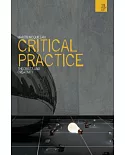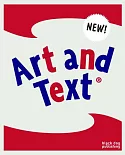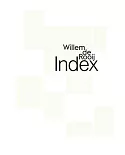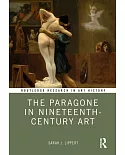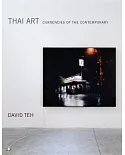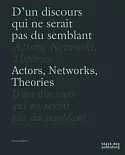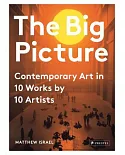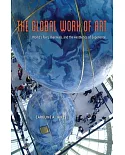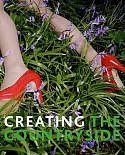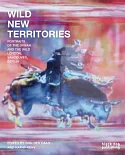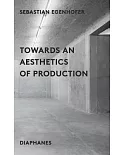This sweeping overview of Ellsworth Kelly's fifty-year career is the first to bring together the twenty-two pieces the San Francisco Museum of Modern Art acquired from Kelly's personal
collection in May 1999. The volume also includes paintings, sculptures, drawings, and reliefs from the Museum's previous holdings and private collections throughout the San Francisco Bay Area.
The primary text by Madeleine Grynsztejn explores the evolution of Kelly's artwork, his longstanding interest in the phenomenology of vision, and his experimentation with compositions generated
by the laws of chance. Additional essays by Julian Myers examine key issues and groupings of works, from Kelly's early figural paintings through the shaped panels and relief paintings for which
the artist is best known. Produced to accompany the exhibition of the same name, Ellsworth Kelly in San Francisco is an elegant presentation of the most significant collection of the
artist's work. It secures Kelly's place as one of the most original of American artists.
Kelly's paintings and sculptures are recognized as vital to the evolution of postwar Modernism. One of the chief proponents of hard-edge abstraction during the 1950s, he is also celebrated for
his large-scale monochrome canvases. In 1956, Kelly gained critical recognition when the Whitney Museum of American Art in New York purchased his work and the Betty Parsons gallery presented
his first solo exhibition in the U.S. From the 1970s to the present, the scale of Kelly's work increased as he joined canvases of different sizes and shapes into asymmetrical formats and
created totems in bronze, wood, and steel. From 1996 to 1998 the artist's work traveled to museums in Los Angeles, London, and Munich. Today Kelly's works are represented in museums and private
collections worldwide, and he has received several prestigious awards and honorary degrees. This sweeping overview of Ellsworth Kelly's fifty-year career is the first to bring together the
twenty-two pieces the San Francisco Museum of Modern Art acquired from Kelly's personal collection in May 1999. The volume also includes paintings, sculptures, drawings, and reliefs from the
Museum's previous holdings and private collections throughout the San Francisco Bay Area. The primary text by Madeleine Grynsztejn explores the evolution of Kelly's artwork, his longstanding
interest in the phenomenology of vision, and his experimentation with compositions generated by the laws of chance. Additional essays by Julian Myers examine key issues and groupings of works,
from Kelly's early figural paintings through the shaped panels and relief paintings for which the artist is best known. Produced to accompany the exhibition of the same name, Ellsworth Kelly
in San Francisco is an elegant presentation of the most significant collection of the artist's work. It secures Kelly's place as one of the most original of American artists.
Kelly's paintings and sculptures are recognized as vital to the evolution of postwar Modernism. One of the chief proponents of hard-edge abstraction during the 1950s, he is also celebrated for
his large-scale monochrome canvases. In 1956, Kelly gained critical recognition when the Whitney Museum of American Art in New York purchased his work and the Betty Parsons gallery presented
his first solo exhibition in the U.S. From the 1970s to the present, the scale of Kelly's work increased as he joined canvases of different sizes and shapes into asymmetrical formats and
created totems in bronze, wood, and steel. From 1996 to 1998 the artist's work traveled to museums in Los Angeles, London, and Munich. Today Kelly's works are represented in museums and private
collections worldwide, and he has received several prestigious awards and honorary degrees.


